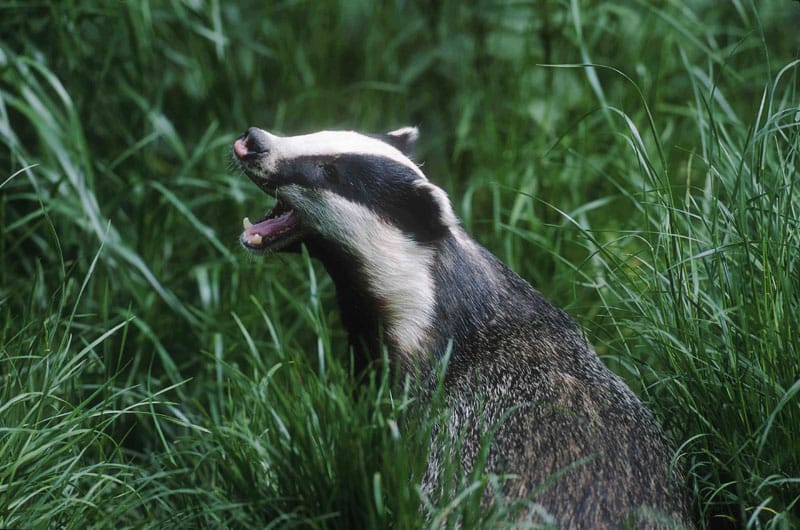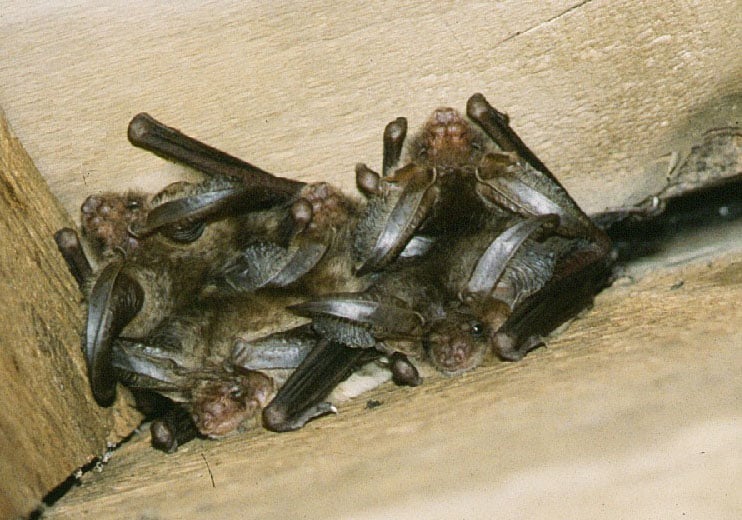DC Sarah Bailey & DC Louise Morris

London is home to many species of wildlife, from the birds and squirrels that visit our gardens and parks, to more secretive animals like badgers, hedgehogs, water voles and Muntjac deer. Many species are protected by law to varying degrees. For example, all wild birds are protected under the Wildlife and Countryside Act, 1981, but the taking or killing of some birds is permitted in certain circumstances. Badgers are also protected by the Badger Protection Act, 1992, and all wild mammals are protected from deliberate acts of cruelty by the Wild Mammals Protection Act, 1996.
For many people, wildlife adds to the quality of life in their area. However, it is a sad fact that many crimes are committed against wildlife here in London. Some wildlife crimes, like badger baiting, involve cruelty when a badger is dug from its sett and attacked by dogs. Often, bets are placed on how long the badger will survive. Other wildlife crimes include the capture of wild finches for sale as songbirds, the clearance of gardens or municipal hedges and trees where birds are known to be nesting, or the demolition of buildings where bats are known to roost. It is the job of the Metropolitan Police Wildlife Crime Unit to protect wildlife by upholding the laws designed to protect it.
As the central unit, we receive calls and emails from members of the public as well as other police officers reporting offences or enquiring whether certain actions may constitute offences. We deal with crimes against indigenous wildlife as well as exotic species and their derivatives such as elephant ivory and rhino horn. The job firstly involves establishing if a wildlife crime has been committed. For example, having a dead kestrel x-rayed to establish if it has been shot, or having a fox examined to investigate whether it has been poisoned. This requires liaison with outside agencies for expertise and advice. We then endeavour to identify any offenders by, for example, having shotgun cartridges examined for finger marks and then, if a suspect is identified, we conduct interviews under caution at a police station. If we obtain sufficient evidence that a wildlife offence has occurred we may issue a police caution in some cases or in others the case may go to court. Each borough in the Metropolitan Police District has a wildlife crime officer who will also mount investigations independently or with the assistance of the central Wildlife Crime Unit if necessary.
We hope that engaging with GiGL will help us in our work. We may be able to use the information contained in the GiGL database as evidence that certain species are, or were, present if crimes are committed against them. Or, we may approach the information provider direct for more detailed information to assist with the prosecution of those who commit crimes against wildlife.

Long Eared Bats © Mike Waite
We are frequently approached by members of the public, concerned that proposed building developments will compromise local flora and fauna. Following this initial contact, we can then contact the local authority, Natural England and other partners involved in such processes, such as the London Bat Group, in order to establish exactly what species have been recorded in the local area and indeed, whether or not any police enforcement action is required. We might also be contacted directly by one of the GiGL partners, to notify us of possible incidents of wildlife crime.
There are many crimes which should be reported to us. These include, disturbance to badger setts or harm to badgers themselves; interference with bat roots; chasing hares with dogs or “hare coursing”; poaching and cruelty to wild mammals such as poisoning of foxes, kicking hedgehogs, drowning of fox cubs or squirrels; taking or killing of ducks and swans; persecution of wild birds including raptors like peregrine falcons that have recently returned to London; or trapping of finches. Under the Wildlife and Countryside Act, it is also an offence to intentionally uproot any wild plant of a kind that ordinarily grows in Great Britain without the permission of the land owner. Wild plants are a crucial part of the environment, even in London, as they provide essential food and shelter for insects, birds and animals. In the case of some rarer species it is also an offence to pick the plants or to sell them.
If you witness a suspected serious wildlife crime in action, for example a badger sett or bat roost being disturbed, call 999 immediately. Be prepared to provide information about exactly what is happening: the exact location; descriptions of those involved; the make, model and registration numbers of any vehicles involved, and; if it is safe to do so, take photos to make a record of what is happening. If an animal is suffering also call the RSPCA or local wildlife rescue for assistance. In all other instances call 101 and ask to be connected to the Metropolitan Police Wildlife Crime unit or call the unit direct on 0207 230 8898 or email wildlife@met.police.uk.
Detective Constables Sarah Bailey and Louise Morris both joined the Metropolitan Police Service Wildlife Crime Unit after serving as police officers in a variety of other roles for over ten years. They both have a longstanding interest in wildlife and wildlife protection. DC Bailey began working with the Wildlife Crime Unit after seeing a poster about Operation Charm, which seeks to address the illegal trade in wildlife. DC Morris has previously held the role of Borough Wildlife Crime Officer in Enfield and Islington, where she undertook a number of investigations including that of illegal wildlife poisoning and the sale of endangered species within the antiques trade.
